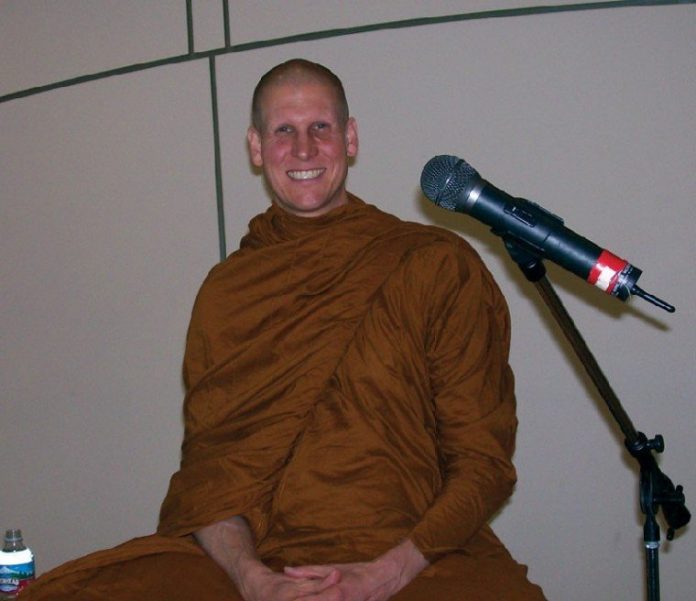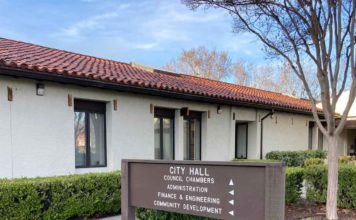On June 5 Buddhist monk Ajahn Chandako made a return visit to
the Morgan Hill Community and Cultural Center. In an evening
sponsored by the Friends of the Morgan Hill Library and the Rotary
Club of Morgan Hill, the abbot of a monastery near Auckland, New
Zealand, presented
”
Caring for the earth:
A Buddhist perspective on climate change.
”
On June 5 Buddhist monk Ajahn Chandako made a return visit to the Morgan Hill Community and Cultural Center. In an evening sponsored by the Friends of the Morgan Hill Library and the Rotary Club of Morgan Hill, the abbot of a monastery near Auckland, New Zealand, presented “Caring for the earth: A Buddhist perspective on climate change.”
Chandako was born as James Reynolds in 1962 in Minneapolis, Minn. While a religion studies student at Carleton College in Northfield, Minn., he felt a call to the Buddhist lifestyle. After graduation in 1984, he continued training in meditation and traveled extensively in Asia.
Finally he settled at Wat Pah Nanachat, the international Forest Monastery in Northeast Thailand where he trained with some of the great Thai meditation masters, then taught in Europe, Australia and the United States. Chandako has been abbot of Vimutti Buddhist Monastery for three years, during which time the monks have planted nearly 4,000 trees in an effort to restore the New Zealand environment.
After leading his audience in a five-minute guided meditation exercise, Chandako presented his thesis: The current climate change situation is a “moral issue.” He suggested that the question isn’t “What’s happening?” (“Every living system on earth is in decline.”) The question is “What can we do about it?”
Buddhism teaches the importance of “balance” in life. “Happiness comes from letting go.” If people can be satisfied with fewer material things, if they can avoid the desire to accumulate things, there will be less stress on our ecosystem.”
Humans seem to suffer from a “delusion” that they are separate from nature and can control it. However, the universe is “constantly arising and passing way. We are just renting our bodies,” so to speak.
There are practical things people can do to create positive change in our world to reverse the effects of adverse climate change:
n Pressure politicians to pass laws for a more sustainable society.
n Reduce meat consumption: Livestock create greenhouse gases. Six barrels of oil are needed to produce and deliver a pound of beef.
n Investigate the science involved in recognizing global warming and work to reduce climate change
Near the evening’s conclusion he returned to the central Buddhist understandings of life: Work for harmony, reduce our own greed, hatred and delusion so that we can have a positive effect on the world.
In answer to a question from the audience about overpopulation, Chandako wryly suggested that we should “popularize monasticism.” He went on to note that much of the developed world (especially Europe) has the opposite problem: declining birthrates. “A certain level of selfishness dissuades people from having babies,” he conjectured.
While visiting in the Bay Area, the monk plans to help establish Flowing Tiger Redwood Hermitage near Boulder Creek (one half-mile from Vajrapani Retreat Center). The new hermitage will have a close relationship with the monastic community of Abhayagiri Buddhist Monastery in Redwood Valley.
For more information see the internet at www.vipassanasc.org/specialEvents.html.












